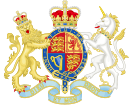- Office of Rail Regulation
-
Office of Rail Regulation 
Non-ministerial government department overview Formed July 5, 2004 Preceding Non-ministerial government department Rail Regulator Jurisdiction Great Britain Headquarters 1 Kemble Street, London, WC2B 4AN Employees 316 Annual budget £29.6 million (2009-2010) [1] Non-ministerial government department executive Anna Walker, Chair Website rail-reg.gov.uk The Office of Rail Regulation (ORR) is a statutory board which is the combined economic and safety regulatory authority for Great Britain's railway network. It was established on 5 July 2004 by the Railways and Transport Safety Act 2003, replacing the Rail Regulator. As a non-ministerial government department it is operationally independent of central government.
Contents
Primary functions
The ORR's main functions are:
- Regulation of Network Rail's stewardship of Britain's rail infrastructure.
- Reviewing and revising the financial framework for the railway industry through periodic access charges reviews in which the structure and level of the allowed revenues of Network Rail are set.
- Granting, modifying, compliance monitoring and enforcement of licences held by operators of railway assets.
- Controlling the fair and efficient allocation of capacity of railway assets through the approval or direction of contracts for the use of track, stations, and light maintenance depots.
- Acting as the appellate authority for certain classes of appeal of a regulatory or legal nature arising under the industry-wide network code.
- Enforcement of railway competition law.
- Independent health and safety regulation for the railway industry as parent body (since 2006) of HM Railway Inspectorate and for Personal Track Safety.
- Approval of changes made to the National Routeing Guide and National Rail Conditions of Carriage.
ORR produces what is known as "the Blue Book", officially titled Railway Safety Principles and Guidance, to ensure those operating the rail network, or designing products related to it, comply with health and safety law.
Statutory duties
In carrying out its functions, ORR must discharge its statutory duties, which are its formal objectives. These are laid down in section 4 of the Railways Act 1993, and include the protection of the interests of users and the promotion of competition, efficiency and economy in the provision of railway services.
Public law obligations
Like other public authorities, ORR must comply with the rules of administrative law, and is amenable to judicial review, so it must act lawfully, rationally, proportionately and in accordance with the relevant rules of procedure. Although operationally independent of central government as a non-ministerial government department, it is still covered by legislation such as the Freedom of Information Act 2000.
Management
The ORR is managed by an eight-member board which is appointed by the Secretary of State for Transport. Anna Walker succeeded Chris Bolt as chair of the Office of Rail Regulation on 5 July 2009 when Bolt's five-year term of office ended[2]. The chief executive officer was Bill Emery, who has now been succeeded by Richard Price.
The ORR employs approximately 320 people, with its headquarters located in London.
References
- ^ Office of Rail Regulation Annual Report 2009-2010, Office of Rail Regulation, 2010-06-03, http://www.rail-reg.gov.uk/upload/pdf/annual-report-2009-10.pdf, retrieved 2010-12-18
- ^ "Anna Walker announced as ORR Chairman designate" (Press release). Office of Rail Regulation. 2009-03-26. http://www.rail-reg.gov.uk/server/show/ConWebDoc.9554. Retrieved 2009-04-05.
See also
External links
Categories:- Non-ministerial departments of the United Kingdom Government
- Transport policy in the United Kingdom
- Non-departmental public bodies of the United Kingdom government
- 2004 establishments in the United Kingdom
Wikimedia Foundation. 2010.

